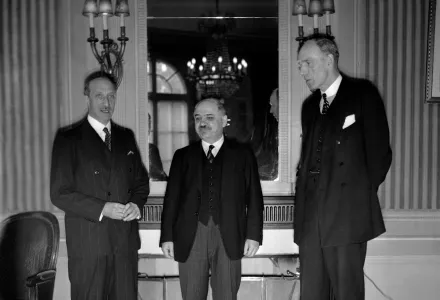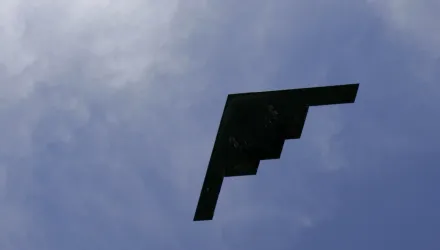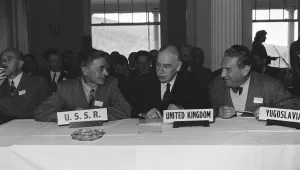International Security is America's leading peer-reviewed journal of security affairs.

Two variables help determine whether ideological enemies are likely to ally against a shared material threat. States’ susceptibility to domestic ideological changes, or regime vulnerability, and the nature of states’ ideological differences are two contending forces that influence alliance formation or failure. Levels of regime vulnerability and the ideological distances that separate states can explain the nature of cross-ideological coalitions.
Mark L. Haas, "When Do Ideological Enemies Ally?" International Security, Vol. 46, No. 1 (Summer 2021), pp. 104–146, https://doi.org/10.1162/isec_a_00413.
The full text of this publication is available in the link below.





